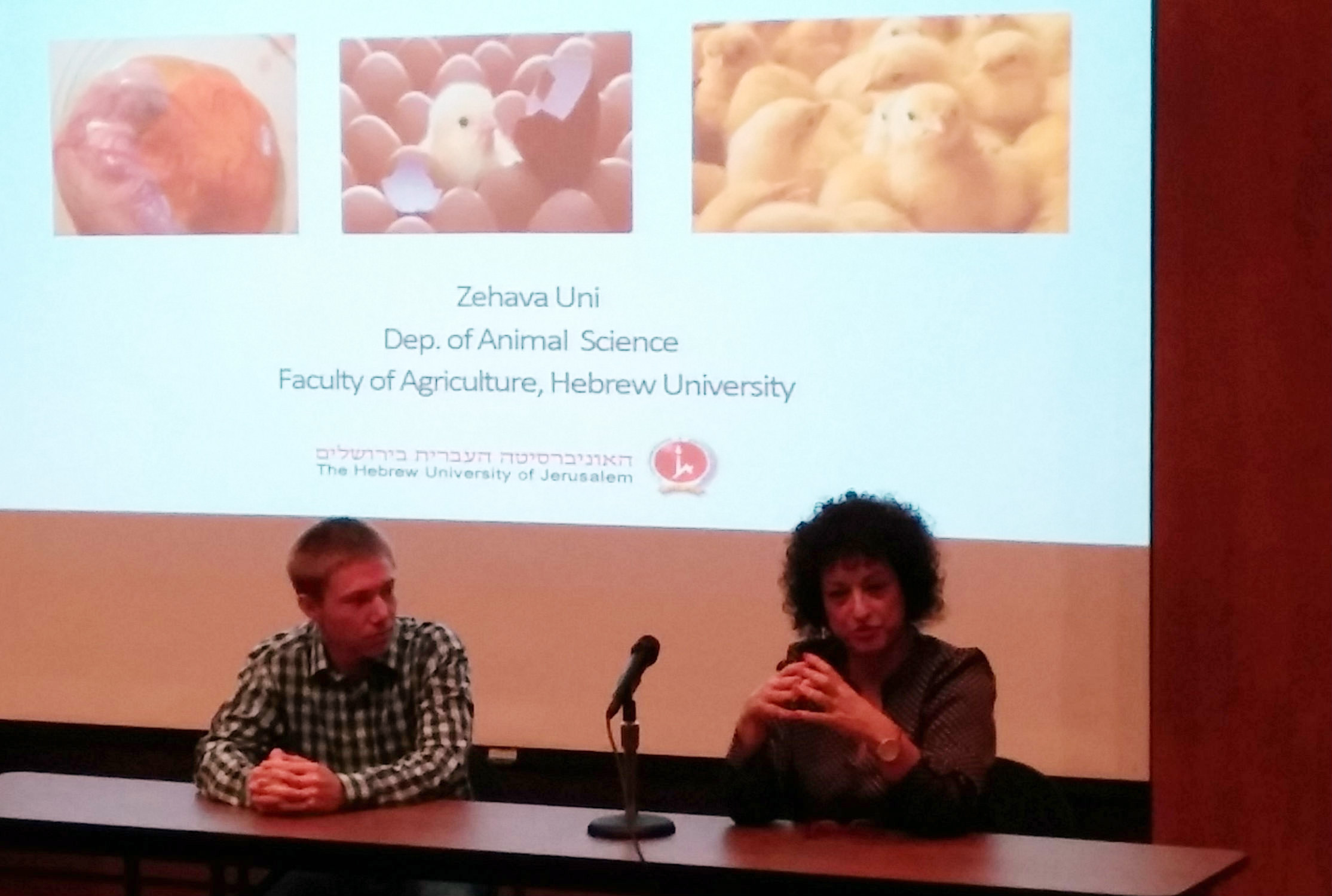
FAYETTEVILLE, Ark. – The Department of Poultry Science and Dale Bumpers College of Agricultural, Food and Life Sciences International Programs Office co-hosted a guest lecture from poultry nutrition expert Zehava Uni Sept. 12 in the Poultry Science Auditorium as part of the Global Food Opportunities seminar series.
Uni is a professor of poultry nutrition, physiology and embryology at Hebrew University of Jerusalem in Israel. She is also a member of the World Poultry Science Association, American Animal Science Society, Israeli Poultry Science Association and European Poultry Science Association.
During her lecture Uni discussed the findings of her recently published research on poultry nutrition during the embryonic phase. Uni talked in great detail about how nutrition is stored and absorbed from the yolk, but first she clarified the meaning of yolk in her research.
“[The yolk] was called a membrane, but after our research we would like to call it a tissue,” said Uni.
Uni and her students used deep sequencing to analyze the yolk tissue and found it has more functions than what was expected. The health of the yolk translates directly to the health of the chick's organ development and the nourishment of the chick before hatching. The yolk sac does everything, she said.
“If their organs are developed in the right way, you will have better results,” said Uni.
Chris Sims joined Uni to discuss his global experiences. Sims is a poultry science and agricultural business double major honor student and is chair of the Bumpers College Honors Board. During his time in Mozambique, Africa, Sims was more focused on implementing the best management practice that will benefit the community, he said.
Poultry and egg production in Mozambique is very labor intensive—but that can be a good thing because of the available labor, said Sims.
“There is a lot of labor so there are a lot of opportunities for them,” he said.
At the end of the lecture, both speakers answered questions from the audience about poultry nutrition. One question led Uni to talk about what she hopes to research in the future.
“We have evidence that there are beneficial bacterias in the yolk,” said Uni.
Though there are no published research studies on beneficial bacteria in the yolk, Uni's most recent research on poultry nutrition in the embryonic phase can be found in the poultry science category of academic journals.
Topics
Contacts
Brittney Fund, communications intern
Dale Bumpers College of Agricultural, Food and Life Sciences
559-978-1262,